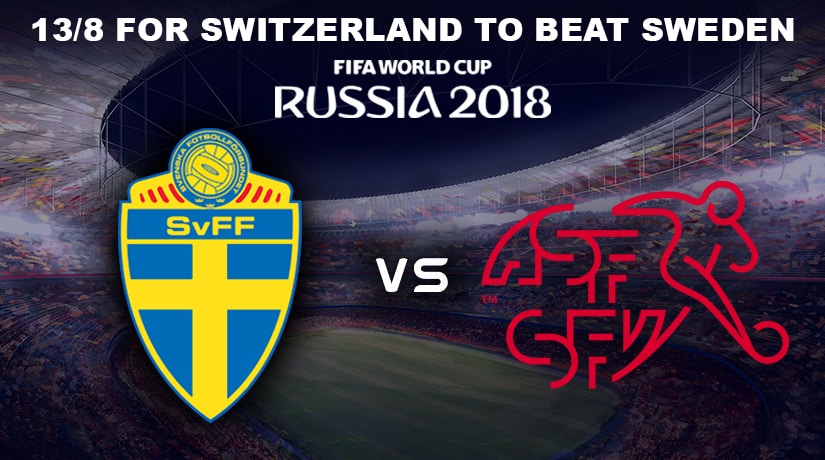Saint Petersburg’s Krestovsky Stadium will be covered in yellow and red when Sweden and Switzerland meet on Tuesday afternoon in the most unexpected 2018 World Cup Round of 16 encounter.
The usual suspects usually win World Cups, but these events tend to surprise us anyway. This is one of those surprises. While Switzerland was given the edge over Serbia to finish second by most experts, Sweden wasn’t on the radar as their potential opponent. By all projections and predictions, that was supposed to be Germany, or perhaps Mexico. Yet, here we are. The Swedes are laughing in the faces of all the doubters while preparing to take on a fellow European qualification playoff team in the Round of 16.
These two teams have met before, although not recently and never at the main event. Trying to analyze in order to decide who’s better or who will progress is useless. This is a 50-50 contest anyway you look at it. What can be done is review each team’s strengths and weaknesses.
Sweden: Group F winner (6 points, 5:2 goal difference)
Strengths:
- Resilience
Sweden fought past France and Holland to finish second in qualification Group A, eliminated Italy in the playoffs and finished first in a group with Germany. Additionally, it rebounded from a devastating last-second Toni Kroos free-kick by lecturing Mexico (3-0) in Group F’s last game in order to become a member of the last 16.
- Team spirit
Andreas Granqvist is the captain and his confidence influences the entire team. The Swedes play together and for each other. That’s how they’ve jumped all the hurdles up to this point and that’s how they’ll play until the end.
- Underdog mentality
A lot of people keep doubting them but they keep pushing forward, proving everybody wrong.
Weaknesses:
- Too defensive
Defense is what got Sweden this far, but at times, Janne Andersson’s men tend to rely on it too much. Case and point, the game versus Mexico. His players had to chase a result and by doing so, they showed what kind of offensive capacities are kept hidden by their defensive tactics.
- Weak bench
Sweden doesn’t have influential players who could come off the bench and change a game. Oscar Hiljemark, John Guidetti and Jimmy Durmaz are all solid players, but none of them is a difference-maker. We’ll see who takes suspended Sebastian Larsson’s place in the starting lineup against Switzerland.
- Unlikely to come back from a deficit
If Sweden goes down a goal, it’ll have to open up, which goes against everything Janne Andersson has taught his players. Furthermore, there isn’t a player (other than Emil Forsberg), who could individually spark a comeback.
Switzerland: Group E runner-up (5 points, 5:4 goal difference)
Strengths:
- Stability
In the last two years, the Swiss have lost a single game in regulation time (2-0 at Portugal in qualifying). The loss meant they finished second in the group, but it doesn’t change the fact they’ve been nearly unbeatable. After the Euro 2016 penalty shootout loss to Poland, they’ve strung together 10 consecutive victories and have won 15 out of the 20 games they’ve played (including this World Cup).
- Compactness
Vladimir Petkovic’s eleven is a very compact team. They defend as a unit and consequently rarely concede more than one goal per contest.
- Consistency
These are footballers who have played together for a while now. They read each other’s movements and know what to expect from one another.
Weaknesses:
- Struggle to create chances
The absence of a true quality striker is the missing link that has held this team back from rising to the next level. Neither Haris Seferovic, Josip Drmic or Mario Gavranovic are a reliable option up front.
- Too cautious
Priority No.1 is not conceding. It brings consistency, but it also exceedingly reduces the winning potential against attacking-minded opponents.
- Right side of defense
Fabian Schar is good, but has issues with taller adversaries (Aleksandar Mitrovic), while Stephan Lichtsteiner’s age doesn’t allow him to be as fast and reliable as he once was.
Prediction
Expect a defensive battle, expect very few goal scoring opportunities and expect penalties.





